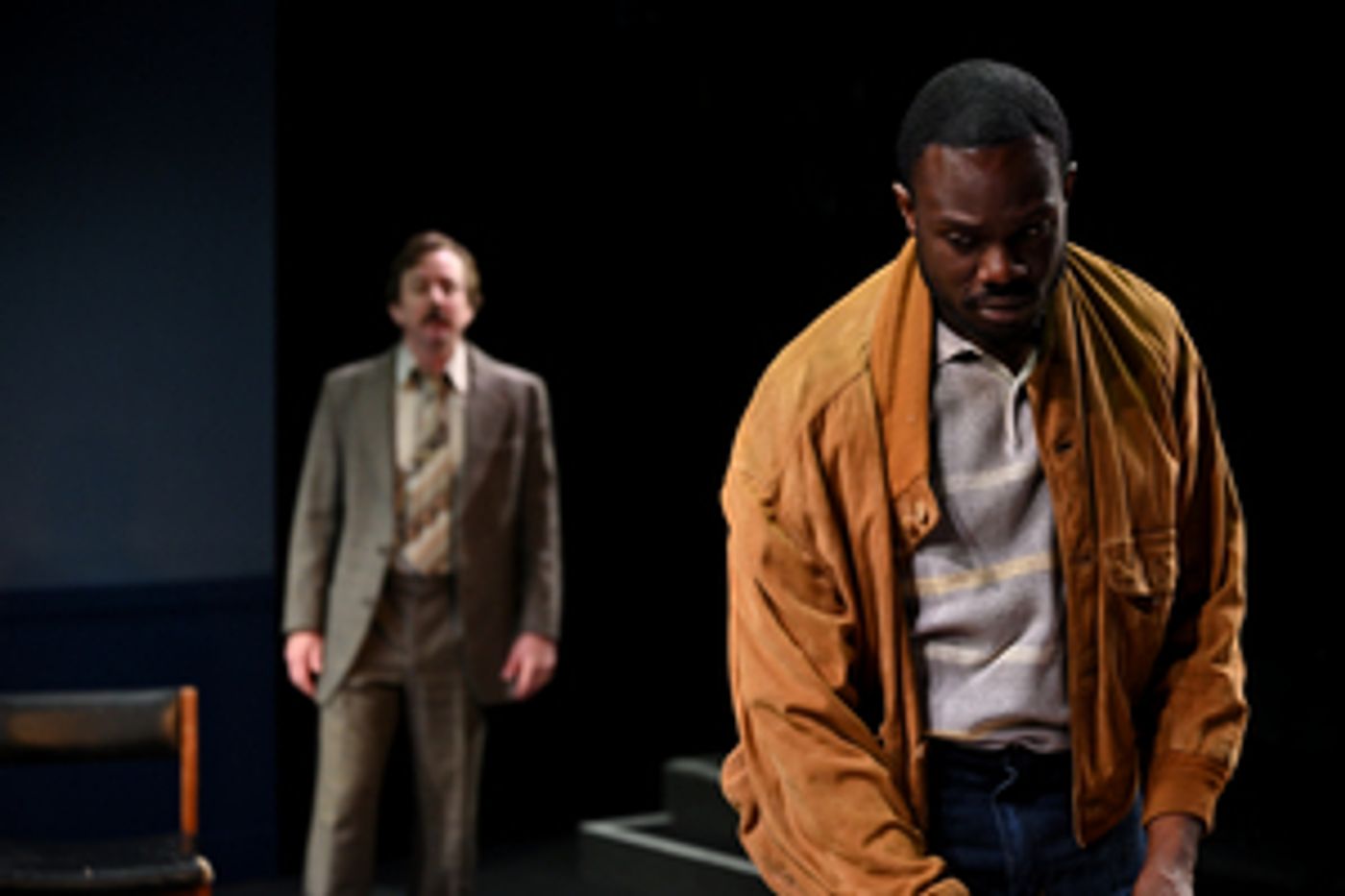Review: SUS, Park Theatre
Barrie Keeffe's 1979 play still packs a punch

 Barrie Keeffe has been dead three years now, but his howl has lost none of its power nor its relevance in 2022. Paul Tomlinson, with whom Keeffe had a long association, directs with a bleak, black comic vibe that never loses sight of the energy behind the play's forthright condemnation of police racism.
Barrie Keeffe has been dead three years now, but his howl has lost none of its power nor its relevance in 2022. Paul Tomlinson, with whom Keeffe had a long association, directs with a bleak, black comic vibe that never loses sight of the energy behind the play's forthright condemnation of police racism.
It's the night of the 1979 General Election with Mrs Thatcher about to sweep to power with a pledge to support the police (ie pander to their prejudices and indulge their failings) and rein in and then roll back the Welfare State - scroungers and moaning minnies were on notice. DC Karn could not be more pleased, nor too his sidekick, DC Wilby, who fancy themselves as a grotesque caricature of Regan and Carter in The Sweeney. The only thing clouding their night is Delroy, whom they have pulled in for questioning after his wife was found dead at their home - a tragedy of which he is unaware.
Stedroy Cabey animates Delroy perfectly - first the slightly cocky, joking lad hauled in on another tedious Sus rap, the means by which police would lift black men off the streets and into stations for, what, exactly? Pleasure, fishing exhibitions, a reminder of who was boss? Cabey is so likeably ordinary that we feel his pain all the more as the true nature of the evening unravels before him and the pain transforms into anger. It's critical that Cabey gets this right (and he does) as he must be the everyman against whom the devils are set.
The detectives are psychotic, wholly careless of their victim's feelings, contemptuous of any notion of empathy or dignity. You spend half the time thinking Alexander Neal's Karn is the mad one and the other half thinking Fergal Coghlan's Wilby is - and then you catch Keeffe's point and the relevance to today: it's the system itself where the real contempt, the real psychosis, the real pain lies.
Lee Newby has done a fine job with the terrible John Collier polyester suits and bad moustaches and his bleak, utilitarian space captures the total absence of human touch many of us will recall from government buildings at the time. The over-filled ashtray was also a very well-observed point.
Though undeniably relevant (it's not like the police have 'solved' individual and institutional racism) some elements of the play do age it. A long discussion of the merits of Anna Ford and Angela Rippon (not as professionals, of course) illustrates the misogyny still endemic in the Met, but feels of its time. Things did change with regard to interrogations as a result of the Police and Criminal Evidence Act 1984 and the focus of attention has shifted from Sus to variants of Stop and Search, so that framing device requires a little more nuance to hit home. That said, it's great to hear the full bite of taboo words, unexpurgated and weaponised as the playwright (and his characters) intended.
But one wonders if there's another play out there, one for which this coruscating 75 minutes is the inspiration. One written by a person of colour, whose life experiences will inevitably seep into the text, one that throws a spotlight on policing as it is done today, policing that has different procedures, different discourses and different (if no less dangerous) problems. The voices we hear may be illustrative of our times, but are rooted in their own - we also need something of the right here, right now.
Sus is at Park Theatre until 15 October
Photo: Charles Flint
Reader Reviews
Videos

